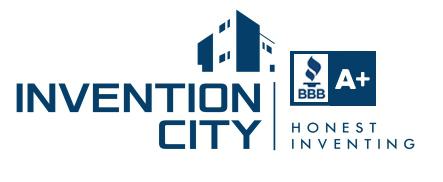Patentability Opinions

"They said I could get a patent."
A patentability opinion is a legal opinion that considers what is known in the public record to determine whether or not your invention idea has unique features that might qualify for patent protection.
The legal answer to whether or not your invention idea can get a patent is almost always yes - provided you offer enough details to distinguish your invention idea. The truth is, you can get a patent on almost anything. With that in mind, here at Invention City, a claim that so and so said you could get a patent means very little.
What really matters are answers to two questions:
- Can you get a meaningful patent that will protect your innovation from copycats?
- Will a product that uses your patent violate the patent rights of someone else?
Few lawyers will even venture an opinion on the first question and a legal opinion on the second question would cost thousands and still not be definitive. Note that you can get a patent on top of someone else's patent. In other words, you can get a fully legal patent but someone else's patent might prevent you from using your own.
Patents are complicated and the more deeply you look into them, the more complicated they become. Absolute answers are almost impossible to get and diving deep to get an equivocal answer costs a lot of money.
At the start, what you really want to know is whether or not your invention has a good chance of making money. That is a business question that you should try answering on your own. Research the market online, use Google patents, take advantage of the Inventicator (free) and if you'd like an independent opinion sign up for a service like our Brutally Honest Review ($185).
After doing a bit of initial homework, if you still believe in the opportunity, then a deeper look is merited. At that point hiring a professional patent attorney/agent to do a deep patent search for relevant prior art both in the USA and internationally makes sense. Likewise, hiring an engineer to interpret how the prior art impacts the proposed design for your invention also makes sense. Legal and engineering opinions of prior art should inform the design you choose for your invention and your patent strategy.
Many inventors think the key to success is getting a patent. It's not. The key to success is having a product that sells in high volume with high profit, along with a way to put some of that profit in your pocket. A patent is one way to stake a claim on a share of profit, but it's not the only way. Trademarks, copyrights, being first and targeting an unknown and underserved market, are all ways of making money with a great product idea without a patent.

share this article: facebook